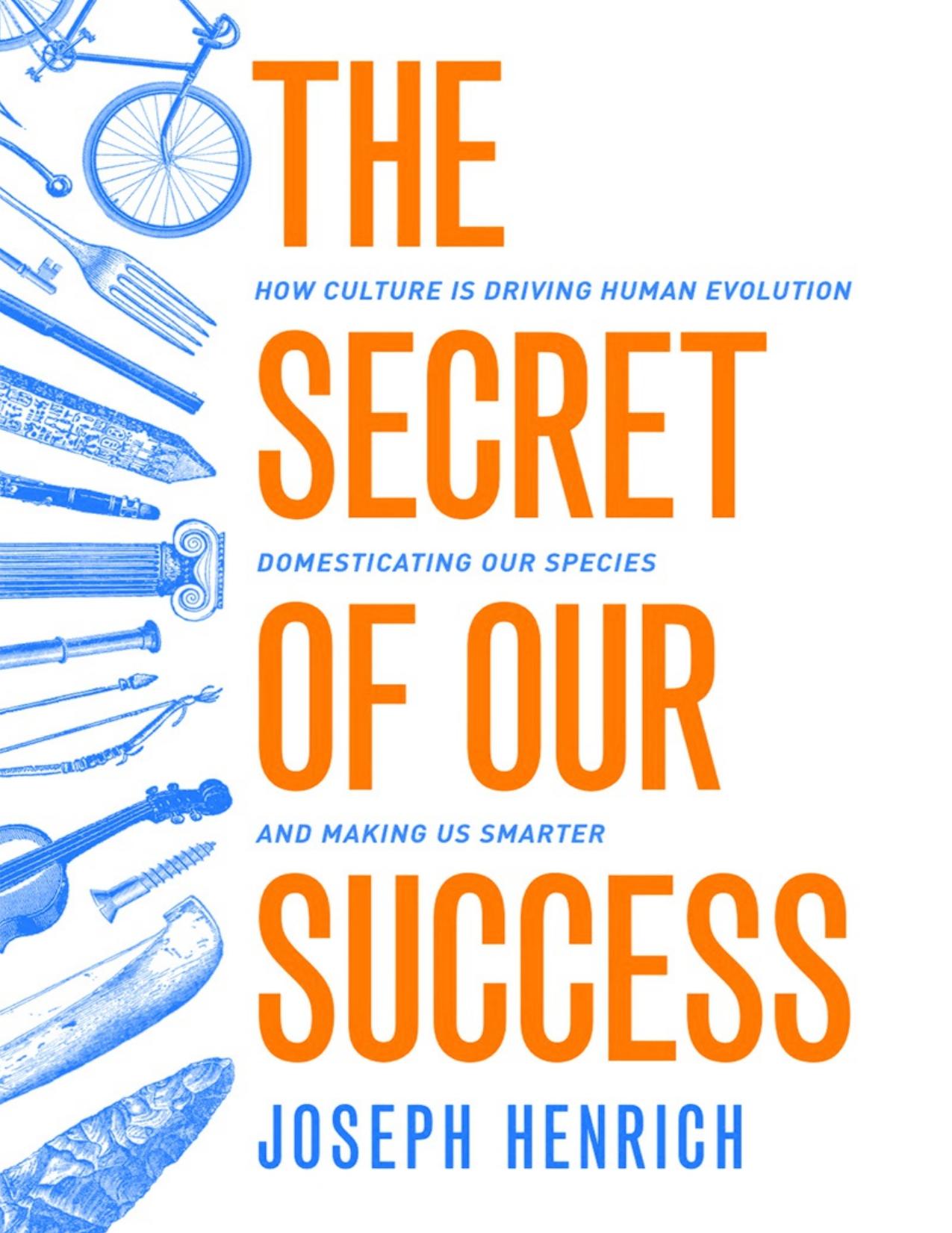The Secret of Our Success: How Culture Is Driving Human Evolution, Domesticating Our Species, and Making Us Smarter by Joseph Henrich

Author:Joseph Henrich [Henrich, Joseph]
Language: eng
Format: epub, azw, pdf
Publisher: Princeton University Press
Published: 2015-10-27T00:00:00+00:00
Sonority
A successful communicator is one who can most effectively be understood, given the local social, environmental, or ecological conditions. As young or naïve learners focus on and learn from more successful communicators—who are using more effective communication tools—cumulative cultural evolution will gradually assemble sign or whistled repertoires, over time, in the same way that it hones kayaks, spears, and boomerangs. Given this, there’s no reason to suspect that such cultural evolutionary processes somehow apply only to whistled or gestural sign languages, and not to typical spoken languages. Thus, spoken languages should—under the right circumstances—show some response to the local acoustic environments and to nonlinguistic social norms, just as whistled and sign languages do. While researchers have done little work on such topics, there’s some preliminary evidence.
Spoken languages vary in their sonority. The sonority of our voices decreases as the airflow used for speech is obstructed and is highest for open vowels, like the /a/ and lowest for so-called voiceless stops like the /t/ in tin. Pronounce each of these sounds and note the difference in the constriction of your airflow. Both vowels and consonants vary in sonority, but vowels generally have much higher sonority than consonants. This means that more sonorous languages tend to have more vowels (e.g., Hawaiian), while less sonorous ones pack the consonants together (e.g., Russian). For the same energy and effort, more sonorous speech sounds can be heard at greater distances and over more ambient noise than less sonorous ones.
If languages adapt culturally, then we can predict that in situations in which people do relatively more talking over greater interpersonal distances with more ambient noise and sound dispersion, languages will be more sonorous. Many environmental variables might influence this, but Robert Monroe, John Fought, and their colleagues reasoned that climate, and specifically temperature, might have a big effect. The idea is simple: in warmer climates, people work, play, cook, and relax outdoors. Compared to life indoors, living outside means that communicators more frequently face the challenges of distance, noise and poor acoustics. Their team generated measures of sonority from word lists for dozens of languages and then looked at the relationship between sonority and measures of climatic temperature, like the number of months per year when it’s below 10°C (50°F).
It turns out that if all you know is climatic temperature, then you can account for about one-third of the variation in the sonority of languages. Languages in warmer climates tend to use more vowels than those in colder climates and rely more heavily on the most sonorous vowel, /a/. For consonants, languages in warmer climates rely more heavily on the most sonorant consonants, like /n/, /l/, and /r/. By contrast, languages in colder climates lean more heavily on the least sonorous vowels, as the /i/ in deep.7
This simple idea can have much nuance added to it. For example, not all warm climates are equally conducive to sonorous speech. In regions with dense forest cover, the advantages of high sonority might be less pronounced, or as the
Download
The Secret of Our Success: How Culture Is Driving Human Evolution, Domesticating Our Species, and Making Us Smarter by Joseph Henrich.azw
The Secret of Our Success: How Culture Is Driving Human Evolution, Domesticating Our Species, and Making Us Smarter by Joseph Henrich.pdf
This site does not store any files on its server. We only index and link to content provided by other sites. Please contact the content providers to delete copyright contents if any and email us, we'll remove relevant links or contents immediately.
Born to Run: by Christopher McDougall(7105)
The Leavers by Lisa Ko(6941)
iGen by Jean M. Twenge(5398)
Sapiens by Yuval Noah Harari(5346)
Spare by Prince Harry The Duke of Sussex(5166)
The Kite Runner by Khaled Hosseini(5154)
Machine Learning at Scale with H2O by Gregory Keys | David Whiting(4281)
Bullshit Jobs by David Graeber(4162)
Never by Ken Follett(3918)
Goodbye Paradise(3790)
Livewired by David Eagleman(3754)
Fairy Tale by Stephen King(3353)
A Dictionary of Sociology by Unknown(3057)
Harry Potter 4 - Harry Potter and The Goblet of Fire by J.K.Rowling(3046)
The Social Psychology of Inequality by Unknown(3009)
The Club by A.L. Brooks(2909)
Will by Will Smith(2891)
0041152001443424520 .pdf by Unknown(2833)
People of the Earth: An Introduction to World Prehistory by Dr. Brian Fagan & Nadia Durrani(2718)
